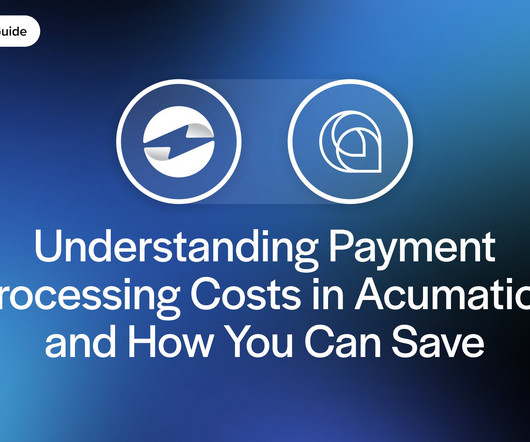How are Interchange Fees Calculated?
Stax
MARCH 13, 2025
Keep card networks up and running Large, global infrastructures are required to process massive volumes of transactions safely and efficiently. Card networks must maintain them properly and pay for fraud prevention tech (data encryption, tokenization, real-time tracking, etc.). of the transaction value plus $0.10











Let's personalize your content